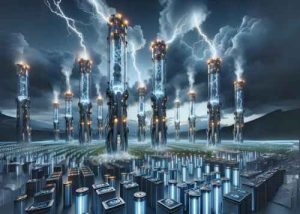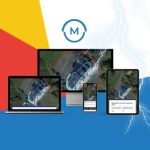Harvesting energy from lightning, while appealing in theory due to the immense amount of energy it could provide, faces major obstacles in practice. Here is a deeper exploration of the challenges and potential advancements in this area.
1. Huge but transient power handling
Lightning releases an extremely high amount of energy in a very short time. Managing these energy peaks requires technologies that can not only withstand extremely high current intensities but also convert and store that energy quickly. Supercapacitors are one of the solutions being considered, because they can charge and discharge very quickly. However, the current storage capacity of supercapacitors is still far from being sufficient to capture all of the energy of a lightning bolt.
2. Unpredictability of lightning
Lightning is inherently unpredictable. Capture systems would therefore need to be extremely widespread to have any chance of capturing lightning, requiring a substantial investment. Even in stormy areas, the frequency and exact location of lightning strikes can vary greatly, making it difficult to justify such an investment for an uncertain energy return.
3. Risks and material damage
Systems designed to capture lightning must not only handle enormous amounts of energy but also withstand considerable physical forces. Direct lightning strikes can damage or destroy equipment, raising safety concerns and increasing maintenance and replacement costs.
4. Energy efficiency and cost
Even overcoming technical challenges, the energy harvested from lightning might not be as significant in relation to overall energy needs. The costs associated with implementing and maintaining the necessary infrastructure would likely be prohibitive, making the project economically unviable.
Research and innovations
Despite these challenges, research continues. Advances in materials that can withstand extreme conditions could improve the viability of lightning capture. For example, materials with better dielectric and thermal resistance properties could enable the design of more efficient capture and storage devices.
Additionally, intelligent systems that can accurately predict the location and timing of lightning strikes could increase the chances of capture, making the investment more attractive. Research in meteorology and predictive technologies therefore plays a crucial role.
In conclusion, lightning energy harvesting remains a primarily theoretical and experimental concept, with significant obstacles to overcome. Although future technological advances may improve the prospects for this type of energy harvesting, for now it remains an impractical energy source compared to established renewable alternatives such as solar, wind, and solar. 'hydroelectric. Continued research in this area is essential to fully understand the potential and limitations of lightning energy capture.





